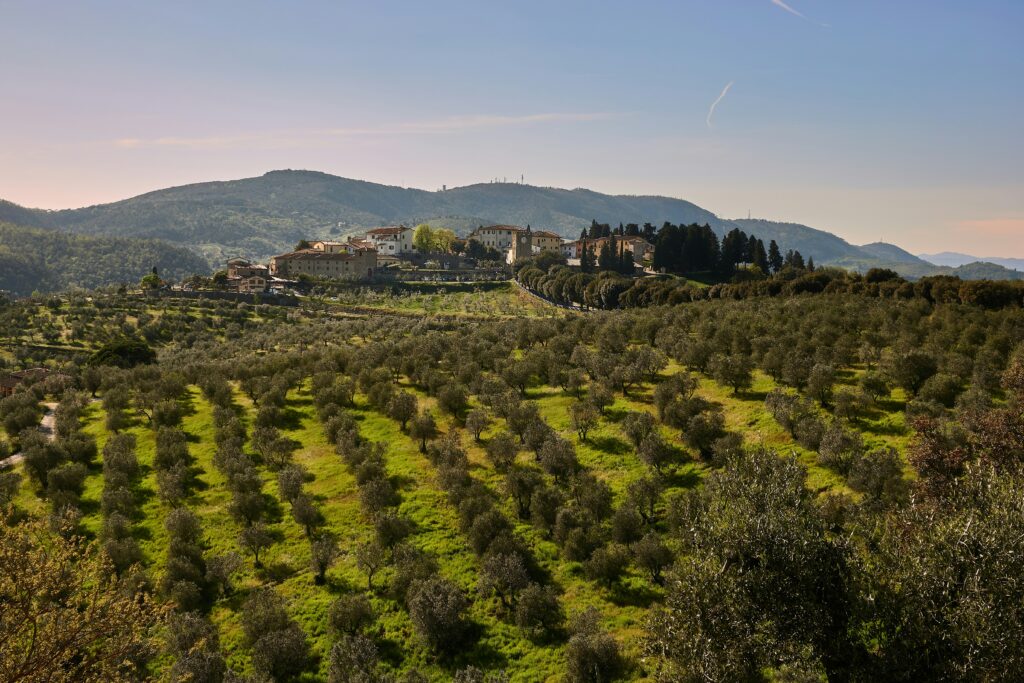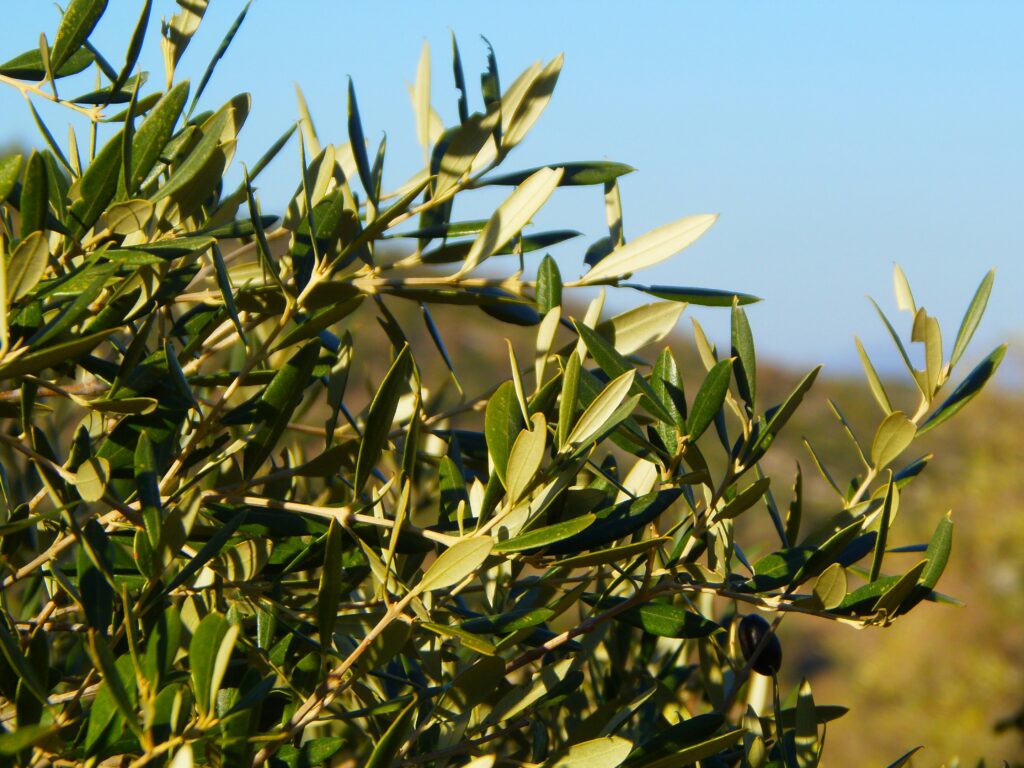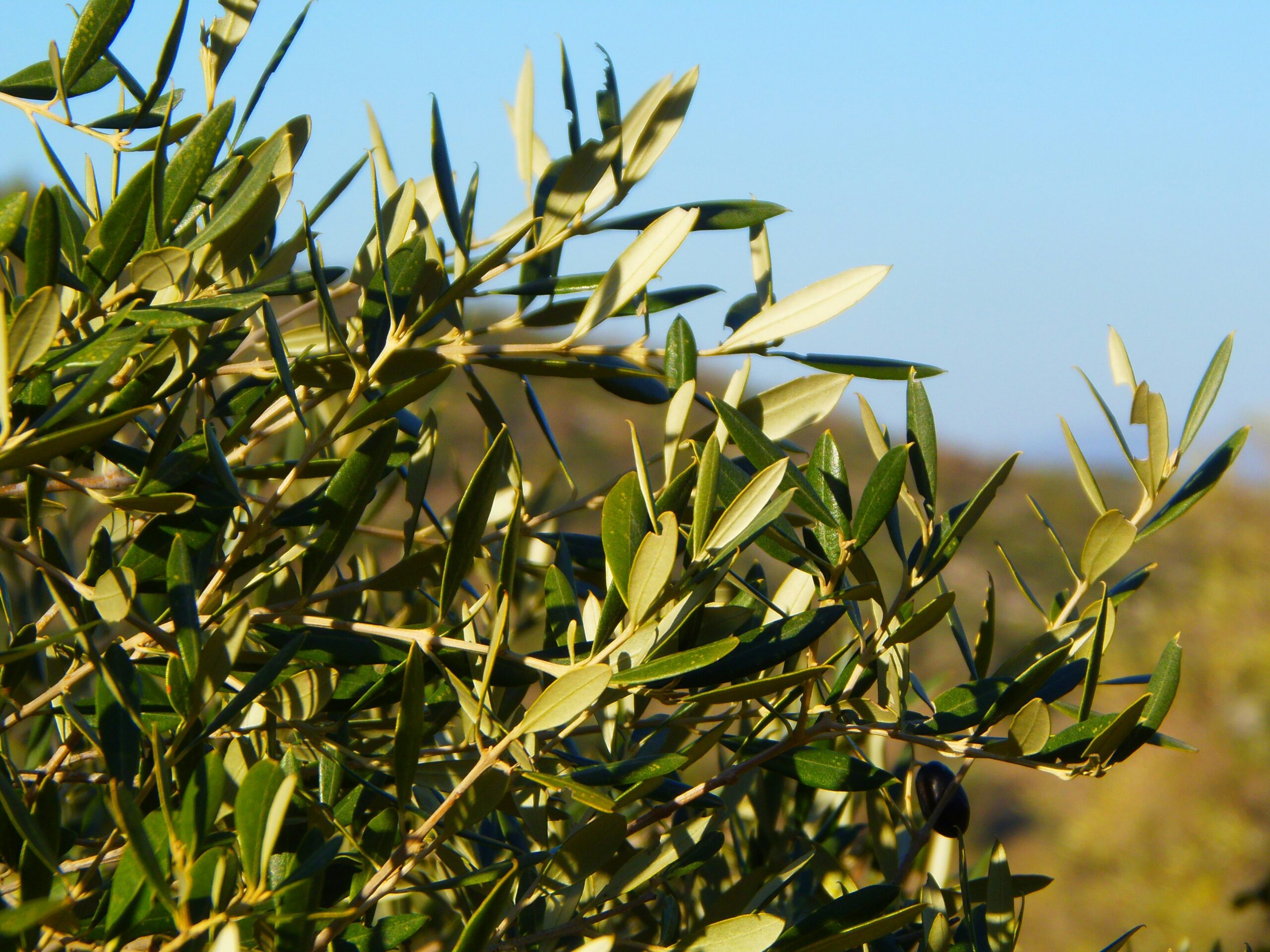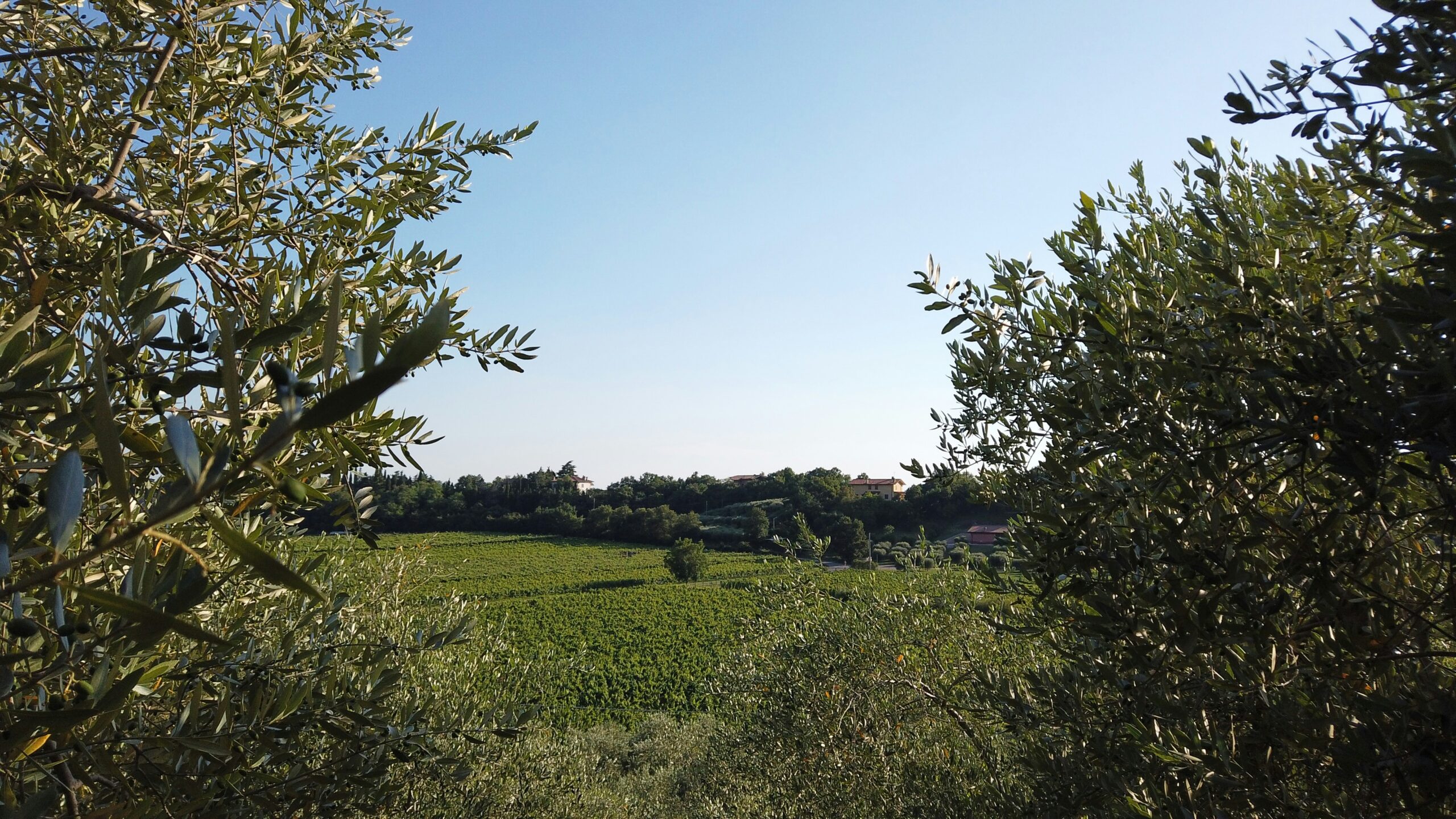Looking to buy an olive farm in Portugal? This guide explains why Portuguese olive farms are a smart investment and everything you need to know to get started. Already have your farm picked out? Hop over to our buying guide to get the ball rolling. Want to get the basics on investing in an olive farm in Portugal? Then keep reading!
Key Points
- Portugal is the seventh-biggest olive oil producer in the world, offering investment opportunities in everything from small farms to large estates.
- Key features that make Portuguese olive farms so attractive are the country’s ideal climate, modern irrigation systems, and crop diversity, ensuring both sustainability and productivity.
- While olive farming is a profitable business, there are challenges, such as initial investment, pests, and market fluctuations.
- Excellent investment opportunities can be found in three main regions in the country, so exploring each one is key to ensuring you select the right location.

The Benefits of Investing in a Portuguese Olive Farm
Portugal’s Mediterranean climate of hot, dry summers and mild, wet winters is ideal for olive cultivation, boosting the quantity and quality of olives harvested. In fact, Portugal is the world’s seventh-biggest olive oil producer, producing around 120,000 tonnes annually, which is projected to increase to 150,000 tonnes per year. Farms across the country vary greatly in size, from small family-owned groves to large estates stretching over 200 hectares with in-house milling facilities. This diversity suits many types of investors, whether looking for the charm of a smaller grove or a big business opportunity.
In addition, the historical value of owning a property like this is highlighted by the incredible lifespan of olive trees in Portugal, which can live for several centuries up to two millennia.
A Steady Market for Olives
With the market for Portuguese olives remaining steady, owners have a guaranteed outlet for the crop, ensuring financial gains so significant that their initial investment can be recouped in as little as 10 years – they prove to be very profitable ventures!
Well-located Farms
Many olive farms are located near landmarks, villages or urban areas, making them both easily accessible and attractive to buyers. As an agricultural investment, olive farming poses less risk than other comparable sectors, securing all investments made and making the search for an olive farm for sale in Portugal an opportunity worth considering.
Progressive Agricultural Heritage
Portugal’s agricultural heritage is reflected in beautiful olive farms, which often have a variety of landscapes encompassing olive groves, water sources, and additional farmland. The shape of these farms, land, and existing structures play a big role in their functionality and appeal.
Looking into what makes these farms different reveals a balance between old and modern farming techniques to achieve high productivity alongside ecological sustainability. This is a characteristic of Portuguese agriculture, where innovation meets tradition.
Booming tourist industry
If considering investing in southern Portugal, it’s worth considering that the region’s tourism infrastructure not only supports farming but also creates opportunities for agritourism. Nearby amenities such as cafés and pharmacies further enhance the appeal and convenience for buyers.
Ease of Lease Agreements
Farm owners might contemplate engaging contractors through lease agreements – this can alleviate the need for hands-on management of agricultural tasks. All these factors combined render owning and managing an olive farm in Portugal both rewarding and financially appealing.
Challenges and Considerations
Olive cultivation in Portugal can be highly rewarding; however, investors must consider the challenges that accompany it.
Initial investment
Establishing an olive farm necessitates a significant upfront investment to prepare the land, plant the trees, and install irrigation systems, while the cost of harvesting olives is variable – hand-picking is more laborious but produces better oil than mechanical methods.
Market fluctuations
Fluctuations in the olive oil market – driven by global supply and demand and local farming conditions – can affect financial results.
Pest control
Effective pest control is another key factor since afflictions like the olive fruit fly can plague the farm and require constant vigilance and proactive measures. Despite being good for olive cultivation, the Mediterranean climate has its challenges, with occasional droughts that require smart water management.
Knowing these challenges and planning for them can minimise the risks of an olive-focused agricultural business and lead to a successful Portuguese olive farm.
Key Considerations When Selecting an Orchard
At the heart of any olive farm are the orchards, and in Portugal, the Galega is the most common grape variety. This variety is grown all over the country and is known for producing small dark olives, which are mainly used in olive oil production. To ensure consistent production year after year, Portuguese farms cultivate both mature trees and new plantations. They also adopt intensive farming to maximise their yield per hectare and increase olive farm productivity.
So, which factors should you be particularly aware of when selecting the ideal olive farm?
Irrigation on your Olive Farm
Water forms the foundation of agriculture, and olive farming is no exception. In Portugal, the sustainability of the olive groves relies significantly on irrigation strategies and natural water reserves. Due to the country’s Mediterranean climate, many farms employ traditional methods such as natural irrigation and wells to ensure a consistent water supply – essential for approximately three-quarters of Portugal’s traditionally rainfed olive groves.
Olivais do Sul is one example among many farms that utilise advanced irrigation systems specifically designed for olive trees. These systems direct every drop of water to the most suitable location, ensuring optimal growing conditions for the trees.
In Portuguese olive orchards, dependable access to quality water is crucial for sustaining yield and promoting environmental awareness.
Extra Land and Produce
In Portugal, farms with olive groves often possess extra land to cultivate additional crops. This practice boosts overall production and serves as a safety net against fluctuations in market prices. Many of these farms intersperse fruit trees, such as cherries, with olive trees, thereby enhancing crop diversity and sustainability.
The addition of nut trees and vegetable patches provides more products for the farm and creates multiple income streams while enhancing the farming experience. Adopting a mixed-crop approach increases production on these farms and makes optimal use of resources throughout the year by leveraging the diversity of agricultural produce. By cultivating various types of crops, farmers establish an agricultural ecosystem that is both economically and environmentally sustainable.
The availability of extra land renders investing in Portuguese olive orchards particularly appealing, given the potential for growth and productivity within these integrated farming systems.

The Best Locations Across Portugal for Olive Farms
Selecting the ideal location for your olive farm in Portugal necessitates considering several factors, from weather to soil and market access. Each region in Portugal offers its own advantages, making it crucial to align your investment goals with the appropriate location, so let’s explore what each of these regions has to offer!
The Alentejo Region
The Alentejo region is a hub for olive cultivation, accounting for more than half of the country’s olive groves and over 70% of olive oil production. Approximately 380,000 hectares in the region are dedicated to olive farming, encompassing large farms producing substantial quantities of olives. Owing to its hot and dry climate and fertile soil, the Alentejo stands as one of the most significant regions in Portugal for olive cultivation.
The Alentejo region is home to several areas with Protected Designations of Origin (PDO) for their olive oils, which signifies not only quality but also tradition. With extensive areas devoted to olive groves thriving under favourable conditions and a strong demand for high-quality olive oil, this presents significant benefits for investors seeking to enter the olive farming industry.
Central Portugal
Olive cultivation thrives in the Fundo area of the Castelo Branco district in Central Portugal due to the area’s favourable climate. The location is also advantageous because of its proximity to the markets and infrastructure; this enhances operational efficiency and profitability for those engaged in olive agriculture.
Being close to markets significantly enhances the profitability of olive cultivation in this region of Portugal and presents an appealing opportunity for potential investors. Olive groves in Central Portugal are well-maintained, benefiting from ample water supply and additional land for cultivating other crops, which makes them an attractive investment. Providing favourable agricultural conditions and logistical advantages, Central Portugal stands out as an excellent choice for investing in olive farming.
Southern Portugal
Southern Portugal’s warm climate is ideal for olive cultivation, presenting an opportunity to capitalise on the burgeoning tourism sector, which could benefit local producers. The longer seasons in the south extend the olive growing period, resulting in higher yields and quality harvests. With the capability to support tourism alongside agriculture, this area has transformed into an attractive location that provides dual income for olive farm owners.
In southern Portugal, you’ll discover a stunning blend of rolling hills, access to water, and fertile agricultural land – a combination of traditional and modern farming. This synergy makes the south not only an excellent place to grow olives but also a destination that welcomes tourists eager to experience olive oil production and farm life firsthand.
It’s safe to say that the benefits and opportunities for olive farming are plentiful in Portugal, so if you’re ready to go ahead and purchase, check out our guide to the buying process!
Need a bit more info before you take the plunge? Get in touch, and we’ll be more than happy to take you on a tour of everything Portugal has to offer – whether virtually or in person.





